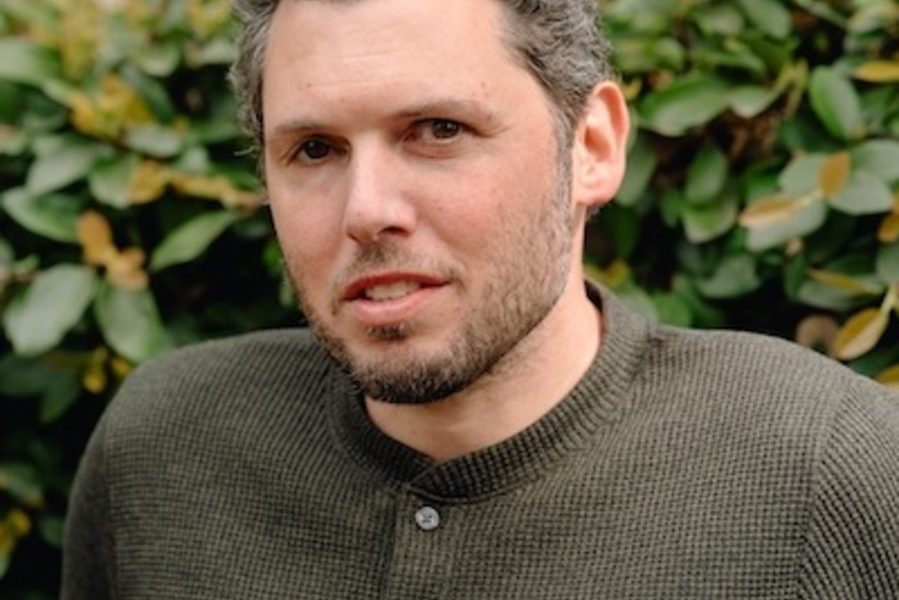Gal Beckerman: On How Change Happens
Gal Beckerman is the senior books editor at The Atlantic and former editor at The New York Times Book Review and the author of When They Come for Us, We’ll Be Gone, which won the National Jewish Book Award and Sami Rohr Prize and was named a best book of the year by The New Yorker and The Washington Post.
He has a PhD in media studies from Columbia University and writes for many publications, including The New Republic and The Wall Street Journal. He lives in Brooklyn with his wife and two daughters. Find him on Twitter and Facebook.
In this post, Gal discusses the years of research and further education that went into writing his new nonfiction book, The Quiet Before, his advice for other writers, and more!
Name: Gal Beckerman
Literary agent: Adam Eaglin
Book title: The Quiet Before: On the Unexpected Origins of Radical Ideas
Publisher: Crown
Release date: February 15, 2022
Genre/category: Nonfiction, big ideas, politics, social change
Previous titles: When They Come for Us, We’ll Be Gone: The Epic Struggle to Save Soviet Jewry
Elevator pitch for the book: Social movements are being undermined by social media, which pushes them to be loud and fast. What can the past teach us about the kinds of media that actually help a radical idea to grow?
IndieBound | Bookshop | Amazon
[WD uses affiliate links.]
What prompted you to write this book?
Observing the social movements that have punctuated the last decade or so made me worry about how fleeting they all seemed—that they managed to capture attention but then never seemed to be able to make the structural changes they desired. This pattern reminded me a lot of social media and its metabolism, its rapid booms and busts.
I wanted to investigate if there was another way that a radical idea—the heart of any movement—could develop, whether there were other forms of communication that would allow for the kind of patience and focus that any group hoping to make lasting change would seem to need. That led me into the predigital past and then back again to our present, this time with fresh eyes.
How long did it take to go from idea to publication? And did the idea change during the process?
It’s hard to say exactly when I first started playing around with this idea, but it may have even been 10 years before the book was actually published. I know that at some point I decided that I needed a firmer basis in media history to really understand the full scope of the issues I wanted to explore.
So I got a PhD! Seriously. At Columbia University. This slowed down the process of finishing the book, but it made me much more informed about the topic.
What it didn’t do though was alter the original vision, which was to tell a series of stories stretching into the historical past and coming up into the present, stories that would act to refract and help illuminate my central argument. I wanted the reader to accumulate their own knowledge as they went along, rather than have me hammer in my point around every corner.
Were there any surprises or learning moments in the publishing process for this title?
With my first book I sought out models that I could clearly follow. It was the history of one social movement with a clear narrative arc and there were other books that had done this same sort of work and could serve as guides—Taylor Branch’s Parting the Water and Adam Hochschild’s King Leopold’s Ghost come to mind.
For this book I was trying something new and a little risky that I honestly couldn’t find a lot of models for. I wanted to write an argument book, but one in which the argument would build through a sequence of stories. This demanded a certain trust in the reader, that they would come along with me even when the thread making its way through these narratives felt thin. This was definitely something I had to learn to get comfortable with.
I had to believe in my own vision for the book even if it was an unusual one, knowing that this structure would serve the idea well. I’d like to say I emerged from that process a more confident writer, but the nature of the work is to always be taking a gamble every time you put part of yourself out into the world.
Were there any surprises in the writing process for this book?
The biggest surprises were in the examples I found to illustrate my point—they often thrilled me with how exciting they were once I came upon them. The one that stands out is the chapter on small African-owned newspapers during the British colonial period. I knew I wanted to include a story about independence struggles in Africa but didn’t know if there was a specific medium I could write about.
After much digging, I landed on the Africa Morning Post, this rich primary source where voices of colonial subjects from the 1930s wanting to break free of their situation came jumping off the page. I spent a wondrous few weeks immersed in the newspaper’s archives. It had mostly been lost to time. That kind of discovery was a highlight of working on the book.
What do you hope readers will get out of your book?
I hope readers will come to appreciate the ways that social and political change happen. And also gain some awareness of the different sorts of digital communication tools that can be used to achieve that change—and know which ones are good for gathering crowds in the streets and which are better for huddling together and making a plan.
If you could share one piece of advice with other writers, what would it be?
Be patient with yourself! I need to listen to this advice myself most days, but there is a desire often to make the words appear on the page before they’re ready to be there. For nonfiction in particular, this means putting in the time to do the research and build the level of confidence you need to tell a story with authority.
It can often feel like lost hours, reading and accumulating knowledge, and it’s easy to forget this part of the work—if only because it’s so much harder to quantify—but it’s critical if you want to feel like what you finally put down is going to last.

Throughout this 12-week course, you will get step-by-step instruction on how to write nonfiction, read Philip Gerard’s Creative Nonfiction: Researching and Crafting Stories of Real Life, and write articles, essays, or a few chapters of your book. Register for this course and discover how fun writing nonfiction can be.




